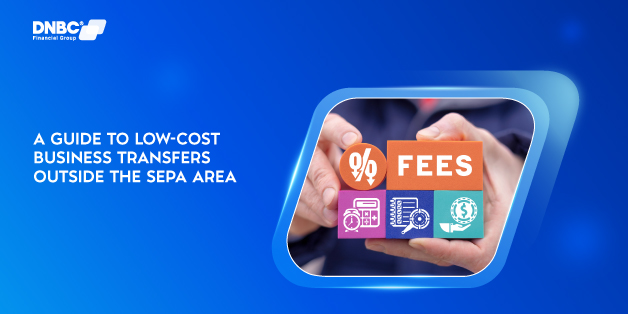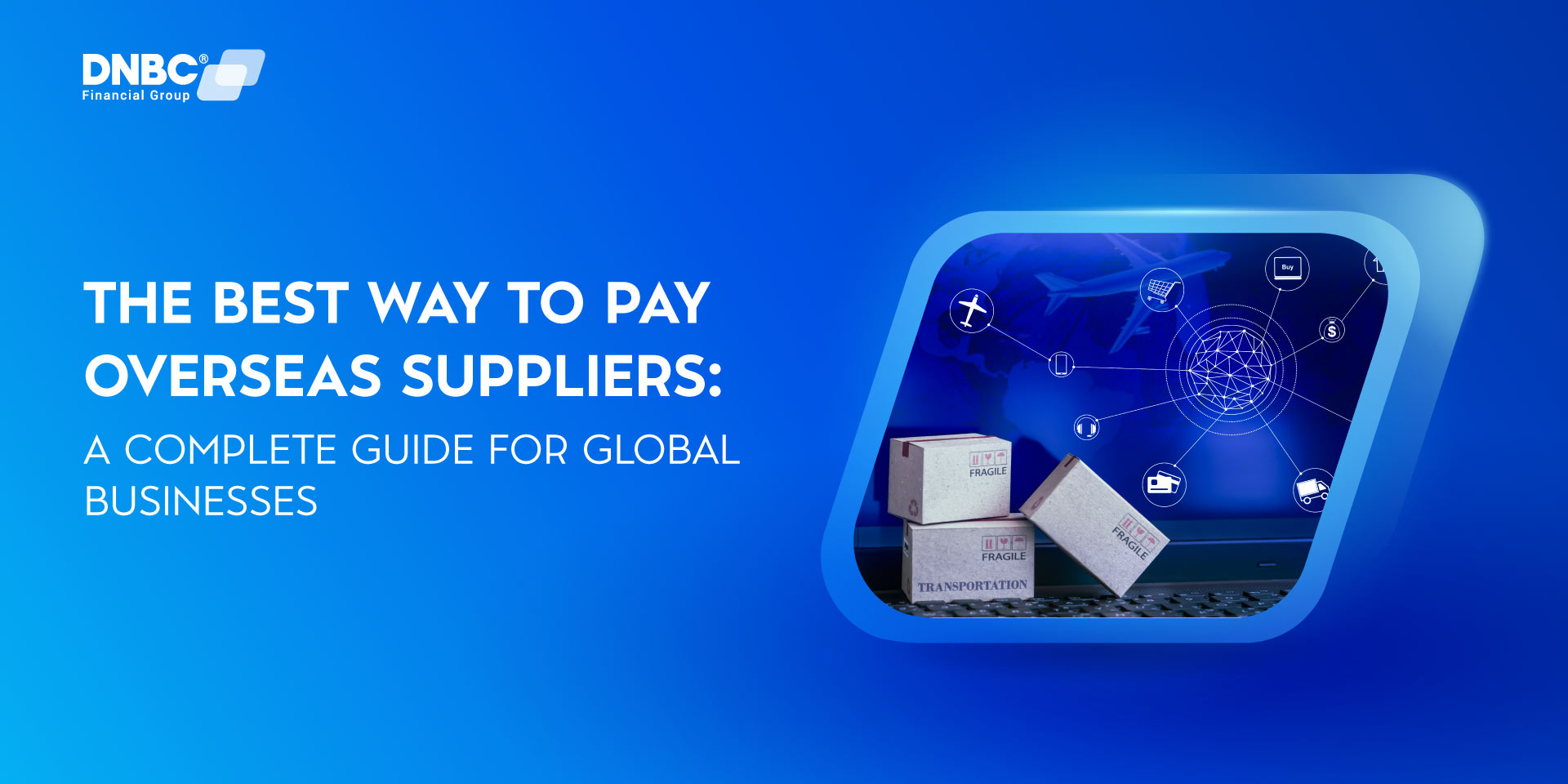- Home
- Blog
- Business Finance
- Opening a Business in Ireland: Key Steps for Success
Opening a Business in Ireland: Key Steps for Success
Business Finance
25 April 2024
DNBC Team
This article is a part of DNBCGroup Blog Center
Contact DNBCGroup for the technology news, tips, trends, and updates.
Ireland has become an attractive destination for foreign entrepreneurs looking to start a business in Europe. The country's favorable tax policies, business-friendly environment, and highly skilled workforce make it an ideal location for setting up a company. If you're a foreigner thinking of starting a business in Ireland, here's what you need to know.

Essential Steps to Starting a Business in Ireland
Step-by-step for starting a business in Ireland as a foreigner
Registering a Company in Ireland
The first step to starting a business in Ireland is to register your company with the Companies Registration Office (CRO). This process can be completed online and requires the following information:
- The name of your company
- The company’s registered office address is in Ireland
- The names and addresses of the company’s directors
- The company’s articles of association
You will also need to provide a bank reference and pay a registration fee of €50.
Obtaining a Visa
If you are a non-EU citizen, you will need to obtain a visa to work and live in Ireland. There are several types of visas available for entrepreneurs, including the Start-up Entrepreneur Programme (STEP) and the Immigrant Investor Programme (IIP). The STEP visa is designed for individuals who wish to start a high-potential start-up in Ireland. To qualify, you must have a business plan that is approved by Enterprise Ireland and have secured funding of at least €50,000 from a recognized investor. You will also need to provide evidence of your education and work experience. The IIP visa is designed for individuals who wish to invest in Ireland. To qualify, you must make an investment of at least €1 million in an Irish enterprise for a minimum of three years. You will also need to provide evidence of your education and net worth.
Securing Financing
Starting a business in Ireland can be costly, and you will need to secure financing to cover your start-up costs. There are several sources of funding available, including:
- Enterprise Ireland: Enterprise Ireland is the government agency responsible for supporting Irish businesses. They offer a range of funding programs for start-ups, including the Competitive Start Fund and the High-Potential Start-up Fund.
- Bank Loans: Irish banks offer a range of loan options for small businesses, including start-up loans and microfinance loans.
- Angel Investors: Angel investors are wealthy individuals who invest in start-ups in exchange for equity. They can provide valuable expertise and contacts, as well as funding.
- Crowdfunding: Crowdfunding is a popular option for start-ups, as it allows you to raise funds from a large number of people. There are several crowdfunding platforms available in Ireland, including Fundit and Kickstarter.
Understanding Taxation and Accounting
As a business owner in Ireland, you will need to understand the tax and accounting requirements. Ireland has a relatively low corporate tax rate of 12.5%, but there are strict rules and regulations that must be followed.
You will need to register for taxes with the Revenue Commissioners and keep accurate records of your income and expenses. It is recommended that you hire a qualified accountant to assist with your tax and accounting obligations.
Finding Office Space
Finally, you will need to find office space for your business. There are several options available, including co-working spaces, serviced offices, and traditional office space. Co-working spaces are becoming increasingly popular in Ireland, as they offer a flexible and affordable option for start-ups. Serviced offices provide a more traditional office environment, with the added benefit of shared services such as reception and IT support. Traditional office space can be expensive but may be necessary for businesses that require a dedicated space.
Cost of starting a business in Ireland
The cost of starting a business in Ireland will vary depending on the type of business you plan to start, the location, and the scale of your operations. However, there are some general costs that you should consider when budgeting for your start-up.
Registration Fees
To register a company in Ireland, you will need to pay a registration fee of €50 to the Companies Registration Office (CRO). If you choose to use a company formation agent, they will charge a fee for their services, which can range from €150 to €500.
Legal and Professional Fees
You may need to hire a solicitor or other legal professional to help with the formation of your company, drafting contracts, and dealing with legal issues. Legal fees can vary depending on the complexity of the work required and can range from a few hundred to several thousand euros.
Office Space
The cost of office space in Ireland can vary widely depending on the location and size of the space. Co-working spaces are a popular option for start-ups, and prices can range from €150 to €500 per month per person. Traditional office space can be more expensive, with prices ranging from €500 to €1,500 per month for a small office.
Equipment and Supplies
You will need to purchase equipment and supplies for your business, such as computers, printers, and office furniture. The cost of these items will vary depending on your needs, but you should budget at least a few thousand euros for the basics.
Marketing and Advertising
To promote your business, you will need to invest in marketing and advertising. This can include website design, social media campaigns, and traditional advertising methods such as print or radio ads. Marketing costs can range from a few hundred to several thousand euros, depending on the scope of your campaign.
Taxes and Accounting
As a business owner in Ireland, you will need to register for taxes and keep accurate financial records. You may also need to hire an accountant to assist with tax compliance and financial management. Accounting fees can range from a few hundred to several thousand euros per year, depending on the complexity of your financial situation.
Insurance
Depending on the type of business you plan to start, you may need to purchase insurance to protect against liability or other risks. The cost of insurance will vary depending on the type and level of coverage required.
Tips for saving money when starting a business in Ireland
There are ways to save money and stretch your budget when starting a business in Ireland. Here are some tips:
Research available grants and funding
There are a variety of grants and funding programs available to support new businesses in Ireland. Check with Enterprise Ireland, Local Enterprise Offices (LEOs), and other organizations to see if you qualify for any funding opportunities. This can help reduce the initial investment required to get your business started.
Consider co-working spaces
Co-working spaces are a cost-effective option for start-ups. These shared spaces provide a professional working environment with access to office equipment and amenities, without the high cost of traditional office space. Additionally, many co-working spaces offer networking opportunities with other entrepreneurs and business professionals.
Use technology to your advantage
There are many free or low-cost tools available online that can help you run your business more efficiently. Consider using cloud-based storage and project management tools to collaborate with your team, and social media platforms to market your business. These options can be much more affordable than purchasing expensive software or hiring additional staff.
Outsource non-core tasks
Outsourcing non-core tasks, such as bookkeeping or marketing, can be a cost-effective solution for small businesses. Outsourcing allows you to access expertise on a flexible basis, without the expense of hiring a full-time employee. This can help reduce your overhead costs and free up your time to focus on growing your business.
Use a cost-effective international transfer service
As a foreigner starting a business in Ireland, you may need to make international transfers to pay for expenses or receive payments from customers or suppliers overseas. Using a cost-effective international transfer service , such as DNBC Financial Group, can help you save money on transaction fees and currency exchange rates. DNBC Financial Group offers competitive rates and a simple, secure process for international transfers.
About DNBC Financial Group
DNBC Financial Group strives to simplify cross-border financial transactions. Our aim is to assist clients and businesses worldwide by reducing the expense associated with international shipping and purchases, facilitating payments from clients situated overseas, transferring funds across multinational operations, and minimizing the impact of currency fluctuations. Our services are designed to make cross-border transactions as straightforward and effortless as possible.
Your Trusted Partner
In your Digital
Journey
Free 1 - on -1 support
Free account opening fees
No hidden fees
Note: The content in this article is for general informative purposes only. You should conduct your own research or ask for specialist advice before making any financial decisions. All information in this article is current as of the date of publication, and DNBC Financial Group reserves the right to modify, add, or remove any information. We don’t provide any express or implied representations, warranties, or guarantees regarding the accuracy, completeness, or currency of the content within this publication.
Related posts

A Guide to Low-Cost Business Transfers Outside the SEPA Area
04 July 2025

How to Set Up a Business Escrow Account: A Simple Guide
20 June 2025

Cross-Border Business: Opportunities and Challenges in the Global Marketplace
23 May 2025

The Best Way to Pay Overseas Suppliers: A Complete Guide for Global Businesses
22 May 2025

Real Time Cross Border Payments: Shaping the Future of Global Financial Transactions
22 May 2025